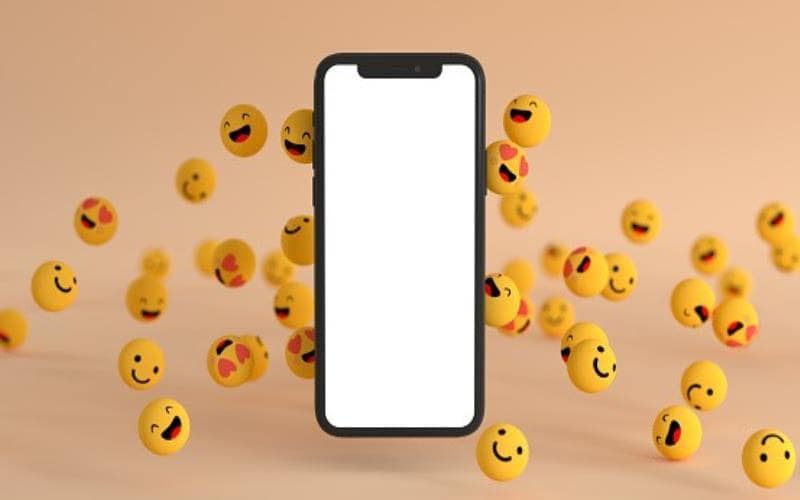
How Simple Can Emoji Steal Your Secret Information?
In 2017, Bitmoji was perhaps the most downloaded iOS application, but what data can it obtain? To whom does the business share the info? And why would Bitmoji require access to the entire keyboard? In today’s world, everyone can access the Internet from anywhere in the world.
When we download applications to our phone, we do not even think how much we can damage our phone and even let us steal our secret information from our phone on our own.
Millions of users have installed the program to make silly, charming versions of themselves while sharing with family and friends.
To begin with, Bitmoji & Snapchat are both created by the same business. Each of these applications is owned by Snap, Inc. Bitmoji was initially developed by Bitstrips, which Snap, Inc. later bought out. One of several factors they are so simple to utilize together is this.
Does Bitmoji steal your information?
Many individuals are concerned about this. Bitmoji demands complete keyboard accessibility once you download it. Whenever an app asks for complete keyboard accessibility, Apple always warns you.
In a nutshell, it is because the creator of a third-party keyboards program may be monitoring what you write. Anyone can do whatever they like with the keyboard application when they have complete access to it.
Is that to say they are keeping track of just about everything you write? No. It simply signifies that it is possible. Even still, it is a frightening prospect.
For iOS, you will view the Complete Access alert, but on Android, you will get further information about Bitmoji’s rights. They are a little unexpected because they contain device status and identification and a lot of memory accessibility and webcam permission.
Bitmoji’s request for permissions linked to phone calls or microphones seems a little weird. However, it can also peek at the list of your active applications, albeit this might be due to Bitmoji’s interaction with Snapchat or Google Keyboard.
Those permissions do not raise any significant red flags, although they are questionable in some cases. They most likely operate to collect additional data that could be used to generate advertising revenue. News of kannada
Threats to mobile phone privacy are still on the upswing. Experts discovered about 3.5 million virus pieces on over 1 million consumer devices. They processed 360,000 malicious content a day by 2017. Yet 78 percent of the items were malware software, resulting in daily detections of approximately 280,000 malicious files, most of which targeted mobile phones. The data clearly shows how much our data on cell phones has become vulnerable.
All these appear to be the same rights provided to other applications. However, this does not rule out the possibility of privacy problems. Snap Map, for instance, has sparked outrage among privacy activists for disclosing people’s whereabouts without their consent.
Is bitmoji safe? Just because Bitmoji’s permits & data-sharing contracts are very typical does not imply you should not be concerned about your privacy.
Applications that can also harm your phone.
Studies have also revealed over 99.9% of harmful programs are located in third-party application stores. The programs, which are generally expensive, are often accessible for nothing in such third-party application stores, and they’re just free on the surface. The hazardous virus that attacks your smartphones is a significant fee to pay.
Here are some dangerous android apps you need to delete.
ES File Explorer:
This was considered quite a functional & user-friendly windows explorer, and it rose to prominence at one time. Unfortunately, bloatware or adware has been injected into the freemium model of this application. It also nags people to download free applications regularly via non-disabled alerts. The program is clumsy and unreliable, and it leaves your files open to theft.
UC Browser:
This software may come as a surprise. However, this famous online explorer, which has a large customer base in China and India, sends users’ search terms to Google and Yahoo without protection. The application’s security features have received little notice. The UC Browser also has been discovered to be vulnerable to malicious software and weird attacks.
Dolphin Web Browser
On the play store, this application has received almost 50 million installations. Its large number of users suggests that it has a large user base, yet this browser, such as the UC Browser, records every one of your activities. The incognito window is also said to monitor your activity data.
Clean Master
This application has more than a billion installations and 44 million ratings on the Play Store. Unfortunately, cheetah Mobile’s application is jam-packed with obnoxious advertisements and malware. Second, given how far the Android platform has progressed, applications that conserve RAM room and make your smartphone speedier are even more of a bother than an aid at this time.
Quick Pic
This is yet another Cheetah App with nearly 10 million installations and 900,000 reviews. The application had a simple UI with simple warnings and regular updates, keeping it simple. Still, after being bought by Cheetah Mobile, it became clogged with pestering adverts and adware, making it excruciatingly sluggish.
Therefore, if you have those applications on your smartphone, remove them immediately.

Conclusion
By 2019, the population of mobile phone owners is predicted to reach 5 billion, and thus the web is currently available to 56.8% of the global total. In the not-too-distant future, these figures are expected to skyrocket. Malicious programs like ransomware, malware, viruses, and infections, previously only found on desktops and laptops, have begun to target mobile phones. The number of malware types for smartphones increased by 54% during 2017. Lifestyle applications accounted for 27% of dangerous applications. Hence we all need to take extra precautions before downloading any app.
